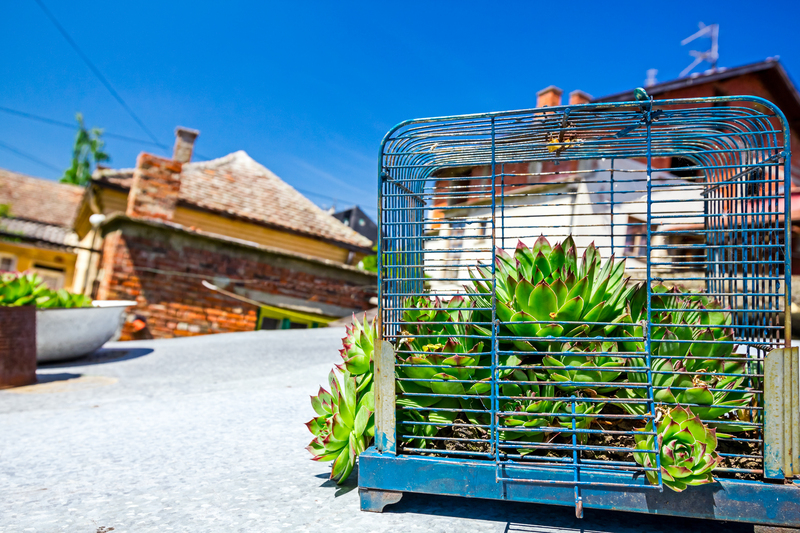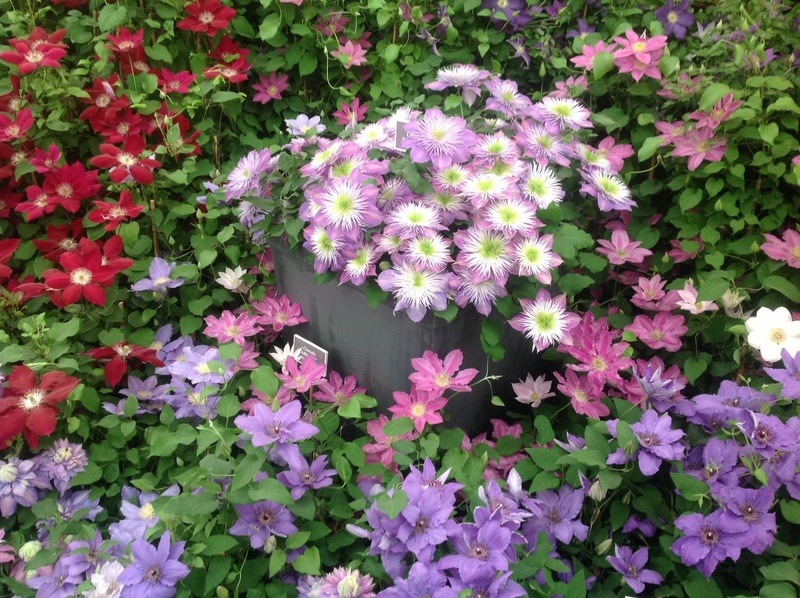Master Your Garden: 3 Essential Tips for Effective Weed Control
Posted on 18/08/2025
Master Your Garden: 3 Essential Tips for Effective Weed Control
If you're aiming to transform your outdoor spaces into a lush, vibrant sanctuary, effective weed control is absolutely essential. Weeds compete with desirable plants for nutrients, water, and sunlight, undermining the health and beauty of your garden. Whether you're a new homeowner or a seasoned gardener, mastering weed management lays the foundation for a garden that thrives.
In this comprehensive and Google-friendly guide, we'll explore three crucial tips for effective weed control and provide additional insights to help you enjoy a stunning garden all season long. Dive in to discover must-know strategies and expert advice for banishing weeds for good.
Why Is Weed Control So Important in the Garden?
Weeds are more than a mere eyesore -- they are fierce competitors in your garden ecosystem. Uncontrolled weeds can:
- Rob plants of essential nutrients and water
- Shelter pests and harbor plant diseases
- Inhibit the healthy growth of vegetables, flowers, and shrubs
- Reduce crop yield and aesthetic appeal
Thus, effective weed management is critical for cultivating a flourishing, productive, and attractive garden. Let's delve into three proven methods for mastering weed control.

Tip #1: Implement Mulching for Natural Weed Suppression
What Is Mulching and Why Is It So Effective?
Mulching involves spreading a layer of organic or inorganic material over the soil. This natural barrier blocks sunlight, making it difficult for weed seeds to germinate. Moreover, mulching contributes to soil health by retaining moisture, regulating temperature, and adding valuable nutrients as it decomposes.
Types of Mulch for Weed Control
- Organic Mulches: Includes bark chips, straw, grass clippings, compost, or shredded leaves. These materials not only smother weeds but also improve soil texture as they decompose.
- Inorganic Mulches: Options like black plastic, landscape fabric, or gravel create a formidable weed barrier but don't enrich the soil.
How to Apply Mulch for Maximum Weed Prevention
- Weed First: Pull existing weeds and water the soil before applying mulch to prevent trapped weeds from thriving.
- Apply a Thick Layer: Use a layer of 2-4 inches to ensure proper coverage and effectiveness in weed blocking.
- Leave Space Around Stems: Avoid piling mulch directly against plant stems to prevent rot and pest problems.
- Replenish Annually: Organic mulches break down over time, so replenish them each season for continued weed control.
Expert Tip: Cardboard beneath mulch can add a bonus layer of protection by further suppressing weed growth while eventually decomposing into the soil.
Tip #2: Embrace Regular and Strategic Hand Weeding
Why Hand Weeding Remains an Indispensable Tool
While mulching is excellent for natural weed control, nothing beats the effectiveness of hands-on weeding for persistent invaders. Especially in tight spaces or around delicate seedlings, pulling weeds by hand remains one of the quickest and most reliable methods to keep your garden weed-free.
Best Practices for Efficient Hand Weeding
- Weed After Rain or Watering: Moist soil allows weeds to slip out with their roots intact, reducing regrowth.
- Uproot Entirely, Including Roots: Many weeds, like dandelions, regrow from roots left behind.
- Dispose of Weeds Properly: Remove flowering or seeding weeds from the area to prevent re-infestation.
Tools for Easier and More Efficient Weed Removal
- Hori Hori Knife: This versatile Japanese gardening tool is excellent for slicing through tough roots and compacted soil.
- Hand Fork: Ideal for loosening soil around weeds and extracting them without disturbing desired plants.
- Weed Puller: Great for removing deep-rooted weeds standing upright in lawns or flower beds.
Pro Tip: Consistency is key! Weed your garden every week to stay ahead of new seedlings and keep your landscape pristine.
Tip #3: Prevent Future Weed Growth with Proactive Planning
Strategies to Stop Weeds Before They Start
The most effective weed control strategies prevent problems before they arise. By designing your garden wisely and implementing preventive maintenance, you can drastically reduce ongoing weed issues.
Proactive Garden Design and Care Techniques
- Grow Dense Plantings: Healthy, closely spaced plants leave little room for weeds to establish or compete for sunlight.
- Seed Carefully: Use certified, weed-free seeds and compost to avoid introducing unwanted weed seeds.
- Install Edging: Physical barriers like plastic edging, bricks, or metal strips keep aggressive lawn and invasive weeds from encroaching into your beds.
- Monitor and Patrol: Regular inspections help you catch weeds early and prevent them from maturing and seeding.
Use Ground Covers and Living Mulch
Establishing perennial ground covers or living mulches not only adds beauty but also chokes out weedy competitors. Low-growing plants like creeping thyme, clover, or ajuga maintain soil moisture, reduce erosion, and provide habitat for beneficial insects -- all while suffocating weeds beneath their compact canopy.
Additional Tips and Expert Insights for Long-Term Weed Management
Understand Your Local Weed Species
Knowing the most common and persistent weed types in your region helps you target them more effectively. Some, like bindweed and crabgrass, require different control methods than simple annual weeds.
Combine Mechanical, Cultural, and Biological Weed Controls
- Mechanical Controls: Techniques like hoeing, mowing, or tilling can keep larger areas under control.
- Cultural Controls: Optimize irrigation and fertilization to favor your garden plants, not the weeds.
- Biological Controls: Encourage natural predators or beneficial insects that feed on weed seeds or seedlings.
Use Caution with Chemical Weed Control
While some gardens may require herbicides for tough invasions, always use them sparingly and with care:
- Selective Herbicides: Target specific weed species without harming your desired plants.
- Spot Treatments: Avoid broadcast spraying and treat only affected areas to minimize environmental impact.
- Read Labels Thoroughly: Follow safety and application instructions to protect pollinators, pets, and yourself.
Whenever possible, prioritize eco-friendly weed control solutions for a healthier garden ecosystem.

Frequently Asked Questions about Weed Management
How often should I weed my garden?
For optimal weed prevention, conduct a quick weeding session once a week, especially during the growing season. This prevents weeds from establishing deep roots and going to seed.
When is the best time to mulch for weed control?
Apply mulch in early spring before most weed seeds germinate, and again in late fall to protect soil and suppress winter weeds.
Are there natural weed killers I can use?
Homemade solutions like vinegar, boiling water, or salt can work on hard surfaces or driveways but may harm garden soil and desirable plants. Use such remedies with great caution.
Conclusion: The Path to a Weed-Free, Thriving Garden
Taking control of weeds is not just about aesthetics -- it's about cultivating a healthy, lively, and productive garden. By employing mulch, weeding regularly, and planning proactively, you set yourself up for lasting success. Incorporate these three essential weed control tips into your gardening routine, and soon you'll enjoy robust, beautiful plantings that are free from weed stress.
- Remember to maintain consistency, as vigilance year-round is the true secret to mastering your garden.
- Understand your environment. Tailor your weed control strategies to your specific region and garden layout.
- Choose sustainable and eco-friendly practices for a garden that's healthy for you, your family, and the planet.
With these expert strategies for weed management, you'll be well on your way to achieving a garden that is as easy to maintain as it is delightful to enjoy. Happy gardening!
Latest Posts
Discover 5 Budget-Friendly Low Maintenance Garden Ideas
Master Your Green Thumb with These 9 Gardening Tips for Beginners
Design a Zen Garden for Tranquility and Peace in Your Outdoor Space

